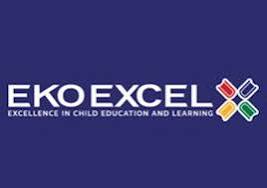June 16 marks the International Day of the African Child, a day dedicated to raising awareness about the challenges faced by African children. This year’s theme, “Education for All Children in Africa: The Time is Now,” aligns perfectly with the mission of EKOEXCEL, an initiative that has revolutionized public primary education in Lagos State.
 Launched in 2019 by Governor Babajide Sanwo-Olu under his THEMES agenda, EKOEXCEL (Excellence in Child Education and Learning) aims to improve the quality of education in public primary schools. Through technology and data-driven strategies, EKOEXCEL enhances teaching methods, monitors learning outcomes, and ensures accountability. This initiative is a cornerstone of Governor Sanwo-Olu’s commitment to education reform.
Launched in 2019 by Governor Babajide Sanwo-Olu under his THEMES agenda, EKOEXCEL (Excellence in Child Education and Learning) aims to improve the quality of education in public primary schools. Through technology and data-driven strategies, EKOEXCEL enhances teaching methods, monitors learning outcomes, and ensures accountability. This initiative is a cornerstone of Governor Sanwo-Olu’s commitment to education reform.
EKOEXCEL has made significant strides in reducing learning poverty, defined as the inability of a child to read and understand a simple text by age 10. By focusing on foundational literacy and numeracy skills, the program has helped pupils from low-income families achieve academic performance comparable to their peers from more affluent backgrounds.
Since its inception, EKOEXCEL has trained over 13,000 teachers, providing them with modern pedagogical skills and digital tools. This professional development has not only improved classroom instruction but also boosted teacher morale and engagement. Teachers now use tablets and real-time data collection to tailor their lessons to meet the individual needs of their pupils, ensuring no child is left behind.
The initiative’s success is evident in the performance of pupils in the National Common Entrance Examinations (NCEE). Since the introduction of EKOEXCEL, pupils from Lagos State public primary schools have consistently ranked among the top performers nationwide. This trend continued in the 2024 NCEE, with a record number of pupils registered for the exams.
EKOEXCEL’s impact extends beyond academics. The program has fostered strong partnerships with parents and communities, emphasizing the importance of education and creating a supportive learning environment both at school and at home. Investments in school infrastructure, including clean water and sanitation, have contributed to better health and attendance rates among pupils.
The Day of the African Child, established in 1991 by the African Union (AU), commemorates the 1976 Soweto Uprising, where thousands of black school children protested against inferior education. The day serves as a reminder of the ongoing need to improve education for African children, combat violence and exploitation, and promote children’s rights and welfare.
EKOEXCEL exemplifies these objectives by improving education quality, reducing learning poverty, and fostering a supportive learning environment. The program has given hope and opportunities to thousands of children in Lagos State, empowering them to pursue their dreams with confidence.
As we celebrate the Day of the African Child, it is crucial to sustain and expand successful programs like EKOEXCEL. Continued investment in education, especially for marginalized and low-income communities, is essential for breaking the cycle of poverty and ensuring every child has the opportunity to succeed.
EKOEXCEL’s achievements over the past five years demonstrate the power of visionary leadership, innovative approaches, and a commitment to educational excellence. As we honor the resilience and potential of African children today, let us also reaffirm our dedication to providing them with the quality education they deserve. The time for education for all children in Africa is indeed now.




